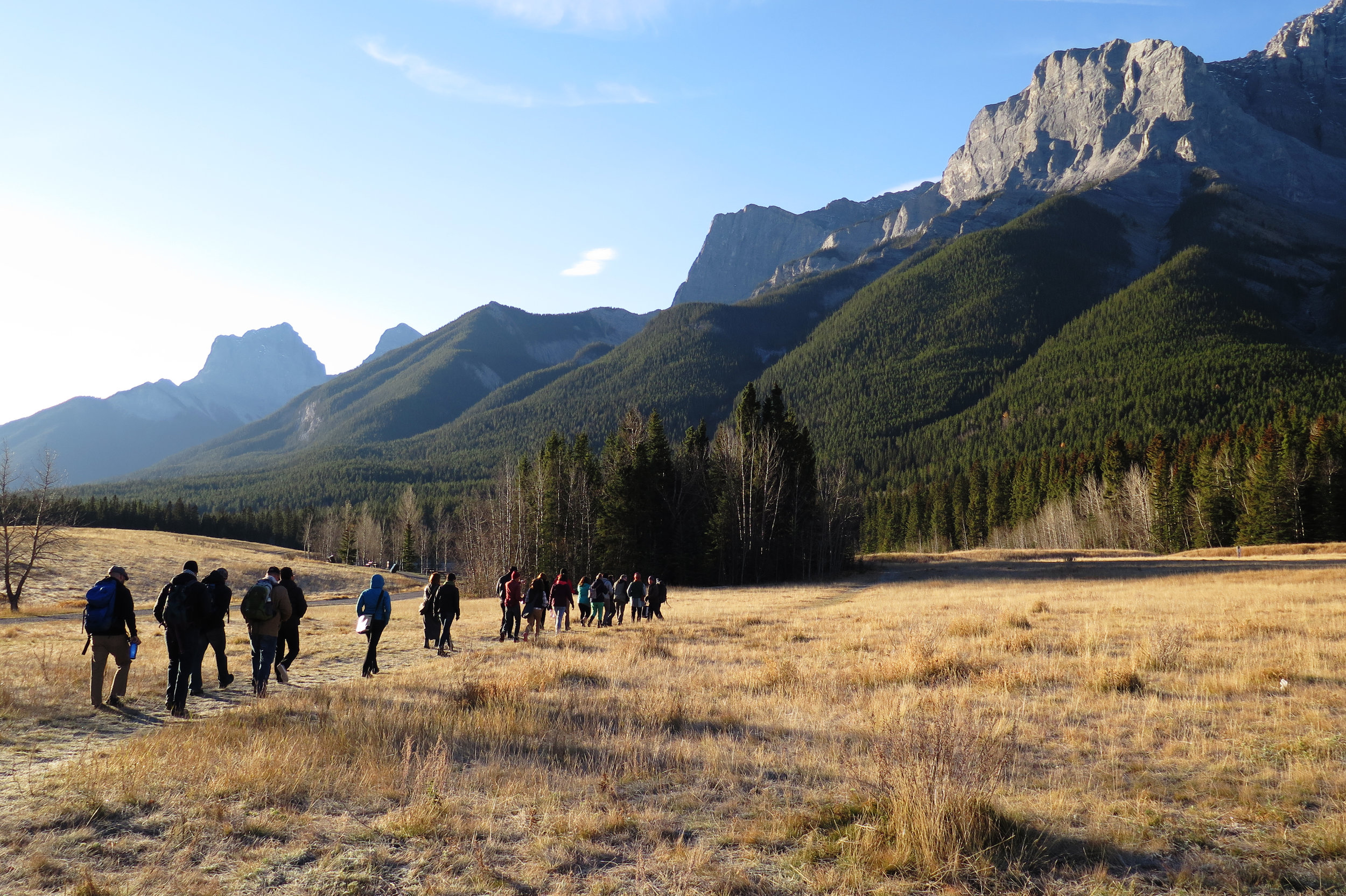Teaching
Nature as teacher.
Teaching
Teaching Experience
A recipient of the West Coast Teaching Excellence Award, I have taught undergraduate and graduate students in a diverse variety of settings and disciplines. Courses taught include Indigenous Perspectives in Biology, Place-based Education, Developing Learning Communities, Introduction to the Climate Crisis, Curriculum Theory and Practice, Interdisciplinary Expressive Arts, the Amazon Field School, Animal Behaviour, Botany, Ecology and more. Over more than twenty years, I have instructed more than 6,000 students across six different faculties. I am also a professional learning strategist with a focus on writing skills, responsible for delivering workshops on holistic learning, decolonized creative writing, mentoring students in several disciplines, and consulting with faculty to embed learning skills in undergraduate courses. I am highly computer literate, and design and deliver workshops on teaching and building community online effectively. My SSHRC-supported PhD in Philosophy of Education focused on place-based education, poetic inquiry, and learner-centered pedagogy. Watch my TEDx talk here.
Biology student Trinity at Campbell Valley Park.
Creator of Extensive Teaching and Learning Resources
I have created numerous teaching resources for use by universities, teacher training programs, and for students internationally. My educational videos have over 100,000 views on YouTube. Two recent resources include Decolonization Educational Practices and Inquiry-based Learning. My SSHRC Storyteller video is used by UBC for teacher candidates. Penn State University uses my essay, “The Jaguar Walk”, as an exemplary model of reflective teaching. My original video, “Rocky Intertidal Ecosystems of the Pacific Northwest,” is used by Ecology courses, as well as the Gulf Islands Center for Ecological Learning, to remotely teach intertidal biology.
Philosophy of Teaching
My teaching philosophy is grounded in learner-centered, inclusive, and respectful pedagogy. I often use an inquiry-based approach that promotes student agency. This includes experiential learning, reflective practice, and community building. Since every learner embodies different strengths and sources of challenge, it is imperative that their voice and passion co-create the learning environment.
The key tenets of my engaged and relational approach to teaching:
Create a foundation of patience and approachability. Build trust and open communication by inviting students to share who they are and their learning journey. Allow space for everyone’s voice to be heard, and respond in a thoughtful and engaging manner. Provide support for learners to think and act creatively, and be encouraged to stretch and challenge themselves.
Have learners develop their own questions and avenues of inquiry. Build resilience and confidence through self-directed learning, problem solving, project-based learning, and reflective documentation, such as a portfolio (my KPU ePortfolio of interdisciplinary teaching and learning is available here).
Cultivate cultural, emotional, social and ecological literacy, and have learners consider the presence (or lack thereof) of these in the learning environment. Explore multiple ways of knowing by applying cross-disciplinary lenses such as indigenous, philosophical, scientific, liberal, and expressive arts perspectives.
Use a holistic approach that is experiential, embodied, and reciprocative to inspire learners’ personal and professional development. View students as whole beings, and help them develop a path of self-assessment and self-reflection through active hands-on learning and engagement in real world settings.
Implement Universal Design for Learning through adaptive and flexible learning and being attuned to emergent ideas and opportunities. Strive to inspire and involve through storytelling, group dialogue, embodiment, and providing context and examples relevant to course themes. Allow for multiple ways for students to express their learning.
Always reinforce, never condescend. Inspire rather than direct. Show genuine and unabashed enthusiasm.
Indigenous scholar Gregory Cajete writes, “By co-creating a learning experience, everyone involved generates a critical consciousness and enters into a process of empowering one another.” As an educator, I need to explore my strengths, faults, biases, and judgements in order to provide an authentic experience in the classroom. A Deweyian approach that promotes inquiry, grounded in place and collective inquiry, can cultivate educational experiences that are resonant and purposeful both in the immediate moment and into the future. Learning can be joyful and meaningful for both the teacher and the student. My goal is to elicit wonder and authentic learning.
Heading toward the mountains for a wilderness workshop.
Learning Strategies
As a professional learning strategist I help students become effective lifelong learners. I develop learning aids, facilitate one-on-one sessions, and give workshops for both students and faculty. Here are some of the workshops I have delivered at KPU:
Writing in Biology
Study Smarter in Biology
Find Your Writing Voice: Effective Writing Without Fear
Using BigBlueButton and Zoom
Say No to Procrastination
Exam Preparation Strategies
University Essays: First Steps
Quote, Paraphrase, Summarize
Write in Your Own Words: Avoiding Plagiarism
Your First Thirteen Weeks
Write It Out: Find Your Writing Voice
Deep Thinking and Questioning Strategies
Don’t Panic: Plan Your Final Weeks
Writing and Editing Your ePortfolio
Strategies to Increase Your Focus and Attention
Testimonials from my TEDx Talk on Teaching
“A fine piece of work: informed, clear, compassionate and deeply wise.”
~Cyndi Zimmerman
“Brilliant reflection, Lee. I will incorporate your talk into my teaching. Thank you for this gift.”
~Elisa Lacerda-Vandenborn, PhD
“Lee Beavington represents the kind of science teacher that can really make a difference in today’s education systems. As he explains, at stake is not just our survival as a species but our collective moral integrity.”
~Alex Lautensach
“One of the most talented and impactful wild pedagogues I’ve had the chance to spend time with. This is a fascinating and innovative take on teaching science!”
~Erika Kazi, VP Social Impact & Sustainability
Click here to read full testimonials from a variety of learners.




